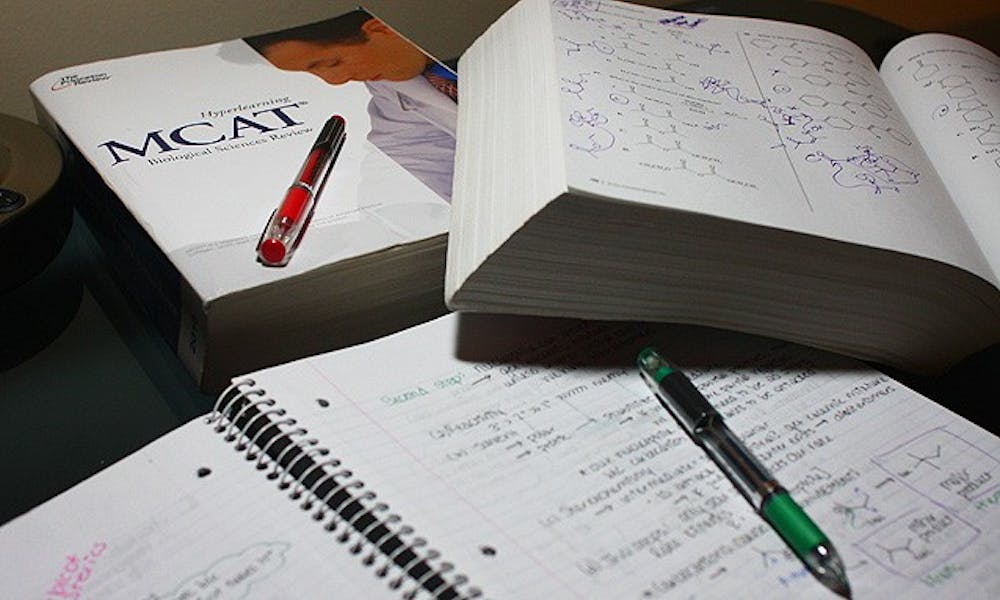Students taking the MCAT tomorrow may feel lucky they will not be taking the revised test.
A 22-member advisory panel appointed by the Association of American Medical Colleges recently released 14 preliminary recommendations for a new version of the MCAT that may require students to prepare differently for the test in the future.
The panel, otherwise known as the “MR5 Committee,” solicited advice from advisory groups and then reviewed 2,700 surveys from undergraduate and medical school faculty, administrators and students. The recommendations were developed over a series of three years and, if approved next February, would be introduced in the 2015 MCAT.
“The MCAT revision is a reflection of this change in science competencies that [is] being required of current applicants to medical school,” wrote Dean Dan Scheirer, director of the Office of Health Professions Advising, in an email.
Scheirer wrote that the basic guiding philosophy of the revisions was to preserve what works best in the test while eliminating what does not work.
The new version of the test, which includes changes to all of the exam’s four areas, would be the fifth revision since the MCAT originated in 1928, but the first in the last 20 years. The two natural science sections of the MCAT—physical sciences and biological sciences—would be revised to reflect the changing face of science and the current verbal section would be replaced by a critical analysis and reasoning section. The writing sample would be eliminated and a behavioral and social sciences section would be introduced in its place, meaning students may need to take additional courses to learn the material.
“The addition of a behavioral and social sciences section will necessitate Duke students taking an introductory psychology or sociology course,” Scheirer wrote.
Camille Carre, a freshman pre-medical student, said these proposed changes would force pre-medical students to take a broader range of courses in the humanities, instead of only taking classes to fulfill requirements.
However, the changes may pose problems for students in terms of when they can fit all necessary coursework before taking the exam.
“Biochemistry will [now] be a required course because it will be tested in one of the science sections,” Scheirer wrote. “Most Duke students take biochemistry currently in their senior year. Some students will have a hard time taking biochemistry by their junior year.”
Also, because the committee has included additional course requirements to the set of prerequisite courses embedded in the new exam, non-science majors may have a harder time completing all of these requirements, Scheirer wrote.
Additionally, the revisions would increase testing time by 90 minutes. The formerly five-and-a-half hour exam would be increased to seven hours, which includes an hour-long lunch break.
“The general concept is a good idea,” said Andrew Wong, a junior pre-medical student. “I’m just wary about extending the test to seven hours because a five-and-a-half hour test is already grueling enough as it is.”
Regarding the changes, Carre believes they make the MCAT more relevant to doctors today.
“A career in medicine requires the doctor to keep up with medical and pharmaceutical advances in the world,” she said.
Still, the proposed revisions could make a daunting task even more stressful for students preparing for a career in medicine, said senior Eunji Yim, who has already taken the MCAT.
“As someone who might be taking the MCAT, if I were in their position, I would just be scared out of my mind.”
Get The Chronicle straight to your inbox
Signup for our weekly newsletter. Cancel at any time.

